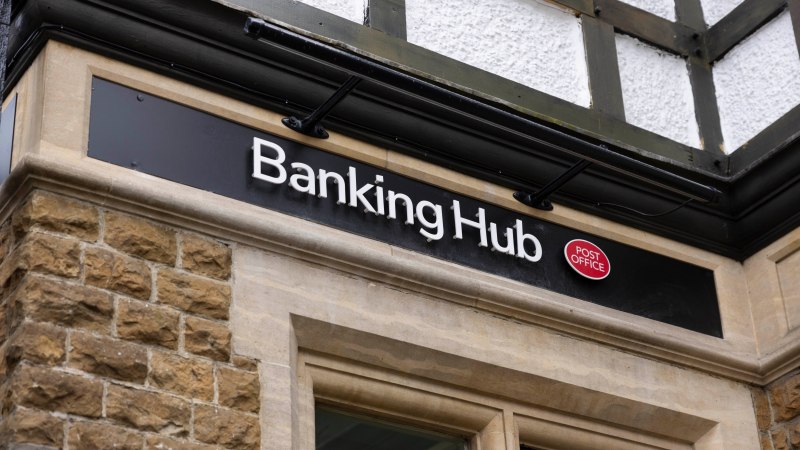Pressure grows to improve banking hubs in wake of branch closures
The government is pressing banks to improve the facilities available in the shared hubs designed to fill the gap left by bank branch closures, amid criticism that the hubs are not doing the job.
Tulip Siddiq, the economic secretary to the Treasury, has said in a letter to the banking industry that “gaps remain”, adding: “I would like to make progress on these issues and ensure the range and quality of banking services provided in hubs make for a positive experience.”
There are now 70 banking hubs in the UK, run as a partnership between the Post Office and the banks to try to fill the gap left by the closure of thousands of bank branches.
The Labour government wants to increase the number to 350 as part of plans to reinvigorate high streets. A total of 6,094 bank branches have closed since January 2015, a rate of 53 a month, according to Which?, the consumer group.
The hubs contain a Post Office counter where customers can pay in and withdraw cash, deposit cheques and pay utility bills, while banks take it in turns to send their own staff to a private room in the hub, usually a different bank each weekday, to help to answer customer queries. Towns that are big enough and have lost all their bank branches can have a hub recommended by Link, the body that runs Britain’s cash network.
Locals in towns and villages where hubs have opened have said that they have helped to increase shopper numbers, as people come to take out and pay in cash and spend it locally. However, frustrations are growing over the limited range of banking services offered.

The hubs cannot help with anything that requires paperwork to be signed or scanned, while customers cannot open an account or transfer money through a Chaps payment. To register a power of attorney or a bereavement, customers would have to be booked for an appointment at the nearest bank branch. There have been complaints about a lack of printers, meaning that customers cannot print off statements or documents. People also cannot pay credit card bills or buy foreign currency at the Post Office counter.
“I understand that hubs are not supposed to be a like-for-like replacement for a traditional branch, but it’s important that customer needs are being appropriately met by the services provided,” Siddiq said in the letter sent to UK Finance, the trade association, and to Cash Access UK, the company that runs the hubs.
Industry sources said the minister’s push had been influenced in part by a Times story in June, which revealed the growing frustrations towards the lack of services in hubs, including from people in Haslemere, Surrey, where a hub was opened in December.
While legislation has been passed to protect people’s access to cash, there are no rules governing the banking services that can be provided in the hubs. For now, this is up to the banks.
The Treasury said: “Banking services are vital for local people and businesses, which is why we are committed to work closely with industry to roll out at least 350 banking hubs across the country. The banks are looking at improvements that can be made to services and we are working with them on this.”
Cash Access UK was contacted for comment.






